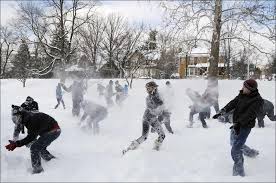Main Menu
Latest Blog Entry
User login
5 ways to keep your hockey team fit all season
“The best way to stay in shape is not to get out of shape”
Jim Radcliffe.
As coaches we are here to help our athletes improve their skills and enable them to play as much as possible. Keeping hockey team players fit for the whole season can be a hard task and we often have to deal with injuries throughout the season.
 The Christmas break is an ideal opportunity to reflect on how training has gone, if you’ve had any injuries and where you need to improve.
The Christmas break is an ideal opportunity to reflect on how training has gone, if you’ve had any injuries and where you need to improve.
In previous blogs we have looked at the fitness demands of hockey and given examples on how to improve your hockey players’ fitness.
Here Duncan Buckmaster gives 5 tips to help your team stay fit for the season:
1. Make effective use of warm ups and warm downs
Warm ups are an easy and effective place to introduce athletes to injury reduction exercises. Simply playing small sided games is very limited, while it warms the body, it tires the players it fails to improve any of the core pillars. Here, we discuss how to design a warm up
2. Continue training through the season
Athletic development is more than a 4 week pre-season training block. Players are generally busy with school or work we need to help them find time. Players need to work on all areas of athleticism: strength, speed, agility & power.
This can be done within skills sessions or as separate sessions depending on the athlete. As little as 5 minutes a day can make a difference, over a year this equates to over 20 hours, the same as a 4 day training camp.
3. Factor in the effects of skills training
The current directive from England Hockey is constraints based coaching, this leads to improved decision making as there is always context to training. It also means players spend more time in a hockey position, creating muscle imbalances on top of already imbalanced bodies due to poor posture.
This extra work in a hockey position needs to be countered; warm ups, warm downs and continued athletic development is vital to reduce the injury risk bought on by this coaching style.
Try:
- 10 mins skill block
- 3 mins “conditioning aspect”: lateral movement and control
- 10 mins skill block
- 3 mins conditioning: acceleration and braking drills
- 10 mins game.
Your players will benefit from the shorter focussed sessions, they will try to apply skills whilst fatigued.
Compare this to: 5 mins jogging, 2 mins of exercises, 45 mins of skills, 10 mins of games, 4 sets of doggies at the end!
4. Know your athletes as people
For both young players and adults we need to get to know our athletes, this helps us motivate them and understand them. Several times I have got part way through a session and found out that an athlete got injured at the weekend or feels ill. Building the relationship with them makes it easier
to find information out and then sessions can be adjusted accordingly.
5. Make sure players get a break from hockey
 Field hockey is now played almost all year round. Younger players have county and regional training scheduled in the summer. Adults have summer and indoor leagues.
Field hockey is now played almost all year round. Younger players have county and regional training scheduled in the summer. Adults have summer and indoor leagues.
While many younger players will play multiple sports at school, they will be pressure in to specialising in one.
We need to encourage as wide a variety of sport and free play as possible so our athletes are adaptable, rather than confine them to structured sessions.
I have found adults also need time away from their main sport, the winter break is one opportunity for this, it allows them to recharge their batteries and see friends & family.
Client Testimonials
 Blundells School
Blundells School
James has a huge breath and depth of knowledge on fitness issues. He is able to implement this knowledge into a practical course both making the task of fitness and conditioning both different and interesting from other fitness training that most are familiar with. He understands the safety issues when dealing with young adults strength and conditioning programmes. Programmes he sets are tailored to the individual needs of the group. There was a huge amount of progress made with some of these individuals in terms of their understanding of fitness and their own fitness levels.
More

